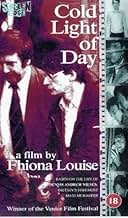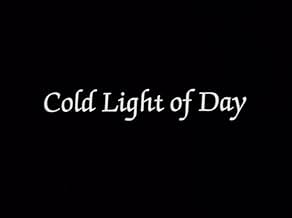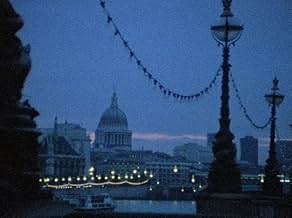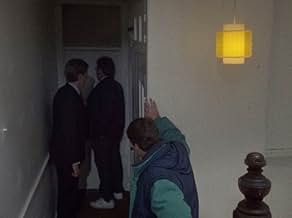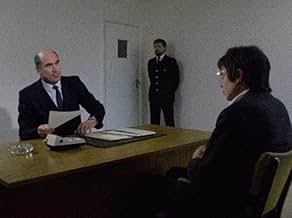Ajouter une intrigue dans votre langueFictionalized account based on the actions of serial killer Dennis Nilsen.Fictionalized account based on the actions of serial killer Dennis Nilsen.Fictionalized account based on the actions of serial killer Dennis Nilsen.
- Réalisation
- Scénario
- Casting principal
- Récompenses
- 1 victoire au total
Eugene Cheese
- Grandfather
- (as Paul Jay)
Louis Haslar
- Rent Boy
- (as Louis Hasler)
Avis à la une
Produced by, and with strong ties (no pun intended!) to "Britain's worst director" (and convicted fraudster) Richard Driscoll, this film, which I first saw near its original release in the 90s, has curiously been resurrected from cinema's dustbin for a recent Blu-ray.
Booed off the screen (literally!) upon its limited release in 1990, this fictionalised 'true story' of the Dennis Nilsen serial killer case from north London in the early 80s is told with zero subtlety or respect. Massively re-adjusting events (for titillation, I'm guessing. For example, 'Nilsen' visits a female prostitute - something which never happened and only seems an excuse to show crude T&A) and the barely-a-feature film includes an insulting, confusing end caption.
It's hard to say what director Fhiona Louise (sometimes styled as Fhiona-Louise -- which is it?!) intended, but the stodgy dialogue and delivery has Driscoll written all over (see, or really don't, any of his other epics like The Comic or Kannibal) and the filmmaking looks like something unsure film students would do, complete with awkward camera half-moves and bit-parters delivering unintentional comedy (a senile neighbour shuffles back to his room like it's a comedy-act and we get lines like "oh s**t!" about a blocked toilet uttered with zero self-awareness).
The whole film only succeeds in capturing the grim reality of Bedsitland at the time (purely by coincidence as many parts of the now gentrified North London were still like that at the time), becoming a period piece in a way.
Ultimately though, it has nothing to say, no care for the victims and generally seems concocted as a quick cash-grab.
Ironically (or why it was rereleased when nobody was asking for it?), a big budget ITV dramatisation of the Nilsen case was also shown in 2020, the same year as Arrow's Blu-ray Special Edition. Unlike Cold Light of Day, it decided to avoid all of the gruesome aspects and position itself as a generic detective drama with a smattering of stock-footage for confusing context.
Those wishing to find out more about the real case are better off seeking out the thorough book Killing for Company.
There's also a BBC Two short film from the late 80s called (viewable on YouTube) called The Monochrome Man which says far more - with much greater assuredness and panache - than this amateurish film ever could.
Booed off the screen (literally!) upon its limited release in 1990, this fictionalised 'true story' of the Dennis Nilsen serial killer case from north London in the early 80s is told with zero subtlety or respect. Massively re-adjusting events (for titillation, I'm guessing. For example, 'Nilsen' visits a female prostitute - something which never happened and only seems an excuse to show crude T&A) and the barely-a-feature film includes an insulting, confusing end caption.
It's hard to say what director Fhiona Louise (sometimes styled as Fhiona-Louise -- which is it?!) intended, but the stodgy dialogue and delivery has Driscoll written all over (see, or really don't, any of his other epics like The Comic or Kannibal) and the filmmaking looks like something unsure film students would do, complete with awkward camera half-moves and bit-parters delivering unintentional comedy (a senile neighbour shuffles back to his room like it's a comedy-act and we get lines like "oh s**t!" about a blocked toilet uttered with zero self-awareness).
The whole film only succeeds in capturing the grim reality of Bedsitland at the time (purely by coincidence as many parts of the now gentrified North London were still like that at the time), becoming a period piece in a way.
Ultimately though, it has nothing to say, no care for the victims and generally seems concocted as a quick cash-grab.
Ironically (or why it was rereleased when nobody was asking for it?), a big budget ITV dramatisation of the Nilsen case was also shown in 2020, the same year as Arrow's Blu-ray Special Edition. Unlike Cold Light of Day, it decided to avoid all of the gruesome aspects and position itself as a generic detective drama with a smattering of stock-footage for confusing context.
Those wishing to find out more about the real case are better off seeking out the thorough book Killing for Company.
There's also a BBC Two short film from the late 80s called (viewable on YouTube) called The Monochrome Man which says far more - with much greater assuredness and panache - than this amateurish film ever could.
Between 1978 and 1983, Dennis Nilsen - an outwardly unremarkable former soldier and police officer turned civil servant - killed at least fifteen men and boys (most of them students or homeless) in gruesome circumstances, allegedly retaining the corpses for sex acts before disposing of the butchered remains by hiding them in cupboards, under the floorboards, or simply by flushing them down the toilet. This grimy, clammy, little-seen independent film is a lightly fictionalised account of Nilsen's hideous deeds, with a standout performance from Bob Flag as the milquetoast murderer, here renamed Jorden March.
Fhiona Louise's film, clearly made on a shoestring budget, steers clear of exploitation tactics, choosing instead to cast its characters adrift in a singularly bleak, uncaring and desolate world of tatty pubs, squalid bed-sits, greasy cafés and grubby bathrooms. The police interrogation of March is inter-cut with flashbacks that reveal not just his crimes (a living room disembowelment and the discovery of what's blocking the drains will send a shiver down the spines of even the hardiest souls) but also provide a window of understanding into what has tipped the apparently kindly loner over the edge. Louise's direction is unobtrusive and detached, allowing the lengthy exchanges between the characters to play out in several lengthy takes, but it's this cold, flat, cinema-verité style that affords the proceedings much of their chilling power, conveying the sense that such horrors really could be unfolding in the street, or even the house, just around the corner.
It's an easy film to admire - it won several awards - but it's not an easy film to watch, let alone enjoy. As a fitting footnote, a caption card dedicates the preceding horrors to "those too sensitive for this world" - which, in his own perverse and twisted way, Nilsen surely was.
Fhiona Louise's film, clearly made on a shoestring budget, steers clear of exploitation tactics, choosing instead to cast its characters adrift in a singularly bleak, uncaring and desolate world of tatty pubs, squalid bed-sits, greasy cafés and grubby bathrooms. The police interrogation of March is inter-cut with flashbacks that reveal not just his crimes (a living room disembowelment and the discovery of what's blocking the drains will send a shiver down the spines of even the hardiest souls) but also provide a window of understanding into what has tipped the apparently kindly loner over the edge. Louise's direction is unobtrusive and detached, allowing the lengthy exchanges between the characters to play out in several lengthy takes, but it's this cold, flat, cinema-verité style that affords the proceedings much of their chilling power, conveying the sense that such horrors really could be unfolding in the street, or even the house, just around the corner.
It's an easy film to admire - it won several awards - but it's not an easy film to watch, let alone enjoy. As a fitting footnote, a caption card dedicates the preceding horrors to "those too sensitive for this world" - which, in his own perverse and twisted way, Nilsen surely was.
"Cold Light Of Day" is more of a dramatisation than a film; fairly short, it explores the psychology of one of modern Britain's monsters. Dennis Nilsen murdered twelve, possibly more, young men, purely for his own gratification. A necrophiliac as well as a sexual sadist, his fascination with death is believed to have sprung from the death of his grandfather, that is if we can believe anything he said.
We see flashbacks to his boyhood but the film concentrates on his picking up his victims and murdering them. There is also an attempt to humanise him by showing his acts of kindness to an elderly neighbour. To which the best reply is so what? Ted Bundy actually worked on a suicide prevention helpline.
The names have been changed, which is understandable for victims and incidental characters, but was it necessary to change Nilsen's name to Jorden March? Lead actor Bob Flag bears a striking resemblance to Nilsen - hopefully only a physical one! - and it is easy to see why this ultra-low budget effort picked up a prize at the 1990 Venice Film Festival.
We see flashbacks to his boyhood but the film concentrates on his picking up his victims and murdering them. There is also an attempt to humanise him by showing his acts of kindness to an elderly neighbour. To which the best reply is so what? Ted Bundy actually worked on a suicide prevention helpline.
The names have been changed, which is understandable for victims and incidental characters, but was it necessary to change Nilsen's name to Jorden March? Lead actor Bob Flag bears a striking resemblance to Nilsen - hopefully only a physical one! - and it is easy to see why this ultra-low budget effort picked up a prize at the 1990 Venice Film Festival.
How this ever got a blu ray release is beyond me, so amateurish in terms of acting and production, and the picture quality is truly appalling. Like some mates have got together with a camcorder and decided to make a film. Really not worth your time.
This is what they sometimes call a 'docu-drama,' which never really cuts it for me, it's either a documentary or a drama and never shall the twain meet. It just doesn't work as either in the end.
It tries for realism as a documentary with the everyday scenes meeting young rootless men in dingy cafés for the promise of a bed,food,drink and casual gay sex. And tries for dramatic scenes with the murders and the ensuing aftermath. But really works as neither as both parts come across as dull and boring. Perhaps most killers are as uninteresting as this and maybe that is the point the film is trying to make. Sadly it doesn't make it very entertaining
The pounding background music intended to heighten tension at crucial moments just grates and doesn't help at all. I was going to say that some editing and cutting would have made the whole thing move faster and have increased the overall pace of the film. But then I noticed on the general information about this film that a 32 minute version was released in the cinemas. I've watched the much longer video version.
As a film about killer, Dennis Nilsen, called Gordon Marsh in the film for what I assume was copyright reasons at the time of it's original release, it just doesn't engage the attention or make us understand anything about the character and his motives.
Other documentaries have been made since about Nilsen that delved deeper and are more interesting and they would be better to search out and watch instead.
It tries for realism as a documentary with the everyday scenes meeting young rootless men in dingy cafés for the promise of a bed,food,drink and casual gay sex. And tries for dramatic scenes with the murders and the ensuing aftermath. But really works as neither as both parts come across as dull and boring. Perhaps most killers are as uninteresting as this and maybe that is the point the film is trying to make. Sadly it doesn't make it very entertaining
The pounding background music intended to heighten tension at crucial moments just grates and doesn't help at all. I was going to say that some editing and cutting would have made the whole thing move faster and have increased the overall pace of the film. But then I noticed on the general information about this film that a 32 minute version was released in the cinemas. I've watched the much longer video version.
As a film about killer, Dennis Nilsen, called Gordon Marsh in the film for what I assume was copyright reasons at the time of it's original release, it just doesn't engage the attention or make us understand anything about the character and his motives.
Other documentaries have been made since about Nilsen that delved deeper and are more interesting and they would be better to search out and watch instead.
Le saviez-vous
- AnecdotesClaire King has a small role in this film as a Prostitute who is better known as Kim Tate in popular UK Drama Emmerdale.
- GaffesIn the end credits, the word 'prosthetics' is misspelled 'prosphetics'.
- Crédits fousBefore the end credits, a caption appears that reads 'For those too sensitive for this world - Fhiona'.
- ConnexionsReferenced in Film Junk Podcast: Episode 905: Talk to Me + Extra Terrestrial Visitors (2023)
Meilleurs choix
Connectez-vous pour évaluer et suivre la liste de favoris afin de recevoir des recommandations personnalisées
- How long is Cold Light of Day?Alimenté par Alexa
Détails
- Durée
- 1h 20min(80 min)
- Couleur
- Rapport de forme
- 1.37 : 1
Contribuer à cette page
Suggérer une modification ou ajouter du contenu manquant

